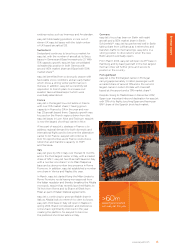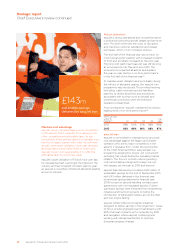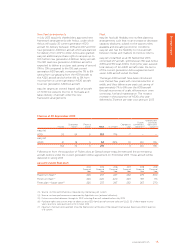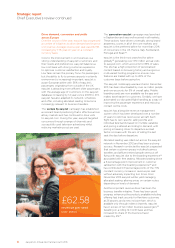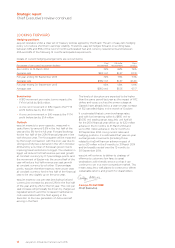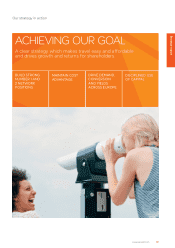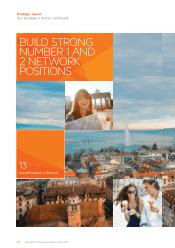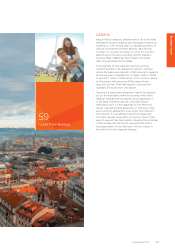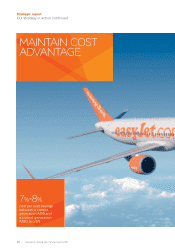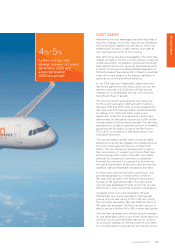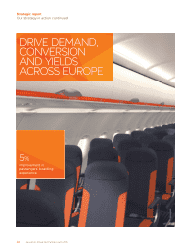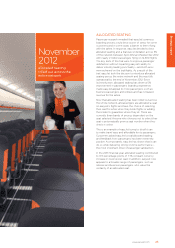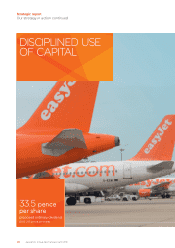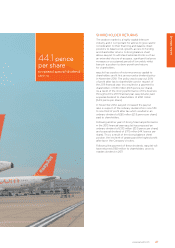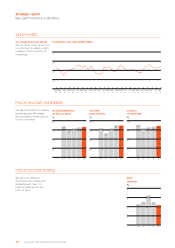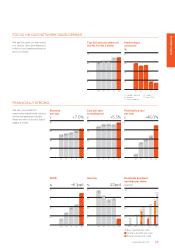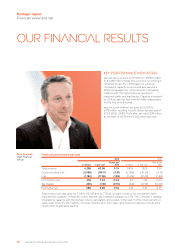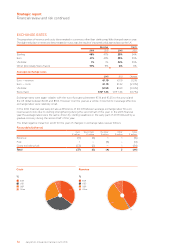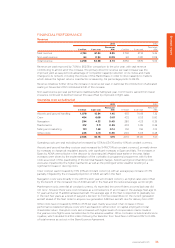EasyJet 2013 Annual Report Download - page 25
Download and view the complete annual report
Please find page 25 of the 2013 EasyJet annual report below. You can navigate through the pages in the report by either clicking on the pages listed below, or by using the keyword search tool below to find specific information within the annual report.
23
www.easyJet.com
Strategic report
FLEET ORDER
Maintaining the cost advantage is another key pillar of
easyJet’s strategy. Since 2003 easyJet has benefitted
from a framework agreement with Airbus which has
enabled the Company to take delivery of aircraft at
very significant discounts to the list price.
New technology has become available in the short-haul
market, primarily in the form of new engines, so easyJet
undertook a highly competitive, rigorous and thorough
fleet selection process to secure its fleet arrangements
to 2022. The process included a detailed evaluation of
the technical and financial benefits of placing an aircraft
order which were subject to the highest standards of
governance, control and ethical behaviour.
In July 2013, easyJet’s shareholders approved a new
framework agreement with Airbus which secures the
delivery of aircraft until 2022 and will help easyJet
maintain its cost advantage through use of a more
fuel efficient fleet of aircraft.
The new framework arrangements with Airbus are
for 35 current generation A320 aircraft for delivery
between 2015 and 2017 under its existing agreement
with Airbus and 100 new generation A320neo aircraft
for delivery from 2017 until 2022, under a new
agreement. Under this new agreement, Airbus also
granted easyJet the right to acquire up to 100 further
new generation A320neo family aircraft. The new fleet
arrangements contain a significant amount of flexibility
giving easyJet the ability to reduce the fleet size to
171 by 2022 or increase it to 298 depending on the
external environment.
The new generation aircraft were sourced at highly
attractive prices and at a greater percentage discount
to list price than easyJet’s previous contract with
Airbus. The new framework arrangements continue
the current policy of operating a common fleet type
and secure easyJet’s supply of aircraft. Importantly,
although this transaction represents a substantial
financial commitment, it is expected to be financed
through a combination of easyJet’s internal resources,
cashflow, sale and leaseback transaction and debt.
In recent years easyJet has been improving its cost
per seat advantage by increasing the number of
180 seat A320 aircraft in the fleet and reducing the
number of 156 seat A319 aircraft. This improves its
cost per seat advantage through economies of scale,
efficiencies in crew, ownership, fuel and maintenance.
Up-gauging from a current generation 156 seat
A319 aircraft to a current generation A320 aircraft
gives a cost per seat saving of 7% to 8%. By moving
from a current generation 180 seat A320 aircraft to a
180 seat new generation A320neo aircraft, easyJet is
able to secure a further 4% to 5% cost per seat saving.
The new fleet arrangements will help easyJet maintain
its cost advantage, which is one of the critical factors in
its future success and will enable easyJet to continue
its successful strategy of offering customers low fares
to convenient airports and efficient and friendly service.
4%-5%
further cost per seat
savings between a current
generation A320 and
a new generation
A320neo aircraft


